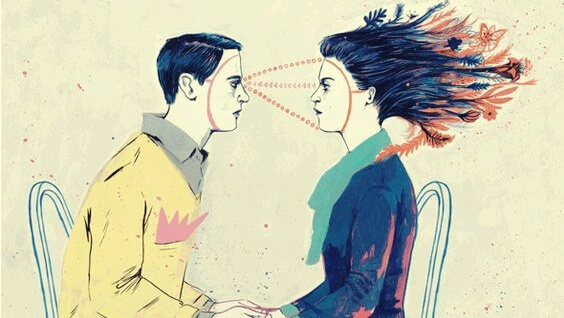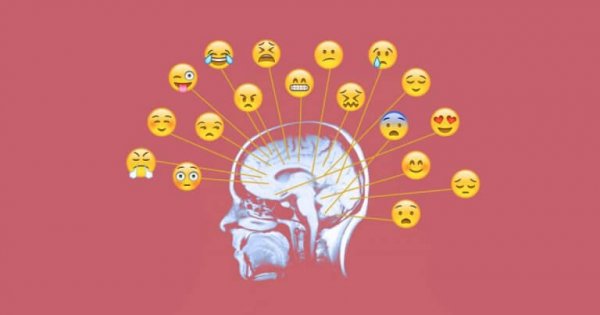Emotional Awareness: What Is It and Why Do We Need It?


Written and verified by the psychologist Valeria Sabater
Emotional awareness is like an awakening of our emotional intelligence. It’s the first step where we identify and define our moods underneath all the fog to take control of our lives. It is absolutely a skill we should all develop, a powerful tool to help us manage our emotions better.
However, this tool is not simple to use. Why? Because emotional experiences are variable, unpredictable and chaotic at times. We’ve all been in a position like this. Trapped in a place where the only thing we can see are negative feelings. Where our health is declining because of a whole mess of feelings that act like invisible thorns, draining our spirits and turning us into shadows of our true selves.
In fact, many of us end up in the therapist’s office saying things like “nobody understands me.” Or “I feel like I’m carrying the weight of the world on my shoulders, I’m exhausted.” However, we hardly ever have true emotional awareness. We come up short when it comes to identifying what’s behind our sadness or fatigue.
Daniel Goleman explains in books like “Emotional Intelligence” that being conscious of our emotions helps us to adapt to challenges in life. Continually reflecting on what we feel and what’s behind our moods directly impacts our well-being. In addition, it gives us strategies to deal with possible depression and other psychological disorders.

What is emotional awareness and why do we need it?
Did you know that around 250 words have been cataloged to describe different types of emotions and feelings? But how many of these words do we know? Were we taught how to use them as children? Knowing how to identify and name our feelings will truly give us a better life.
That’s why we all need to develop real emotional awareness. Here are just a few more reasons to do so:
- To recognize your moods and reflect on them in order to make better decisions.
- To understand other people’s emotions and relate to them better.
- Emotional awareness helps you set limits in order to protect yourself.
- It helps us get to know ourselves.
Finally, here’s an interesting fact: people who have good emotional intelligence are at lower risk of anxiety, depression, and related disorders.

Different levels of emotional awareness
One of the best skills we can teach our children is how to get real emotional awareness. After all, enabling them to reflect on their emotions early on, give names to them and manage them properly will give them a better chance at social — and maybe even academic — success.
However, we should also remember that all of us, regardless of age, can and should invest time and effort into practicing emotional intelligence. It’s a tool we need if we want to be healthy, happy, and emotionally aware.
To understand this better, let’s look a little closer at some key parts of the “Levels of Emotional Awareness Scale” (eLEAS), created by psychologists Lane and Schwartz.
eLEAS
- Recognize the feeling. Every emotion has a physical impact that we should be aware of. Maybe you’ll feel a change in your heart rate, a knot in your stomach…
- What kind of response does it create in you? Emotions have an adaptive function. Some spur us to action with all the energy they give us. Identify the energy behind an emotion.
- Identify the primary emotion. Every sensation, every mental state starts with a primary emotion that we can identify when it’s happening. Do I feel angry? Am I sad?
- What are the emotions behind or combined with the primary emotion. This step takes more depth, delicacy, and — above all — courage. Why? Because accepting negative emotions is not easy. Behind a primary emotion there may be a whole maze full of dark corners you’ll have to shine light on. Sometimes behind sadness, there is frustration, anger and disappointment. Sometimes, behind my anger there’s a demon made up of loss or unmet expectations.

To conclude, making yourself into an emotionally competent person by using these strategies will have a direct, positive impact on your mental health. Emotional awareness is like the conductor’s baton we use to orchestrate a happier life. It is the compass that leads us in more satisfying direction where we know ourselves better and have more control over our life.
Let’s start today!
All cited sources were thoroughly reviewed by our team to ensure their quality, reliability, currency, and validity. The bibliography of this article was considered reliable and of academic or scientific accuracy.
- Barrett, L. F., Mesquita, B., Ochsner, K. N., & Gross, J. J. (2007). The experience of emotion. Annual review of psychology, 58, 373.
- Bisquerra, J. y Pérez, N. (2007). Las competencias emocionales. Educación XXI, 10, 61-82.
- Rieffe, C., Villanueva L., Adrián, J. E. y Gómz, A. B. (2009). Quejas somáticas, estados de ánimo y conciencia emocional en adolescentes. Psicothema, 3, 459-464
- Stegge, H. y Meerum Terwogt, M. (2007). Awareness and regulation of emotion in typical and non typical development. En J. J. Gross (Ed.), Handbook of emotion regulation (pp. 269-286). New York: Guilford Press.
- Lambie, J. A. y Marcel, A. J. (2002). Consciousness and the varieties of emotional experience: A theoretical framework. Psychological Review, 109, 219-259.
- Tull, M. (2021, 21 de marzo). The importance of emotional awareness in PTSD. Verywellmind. https://www.verywellmind.com/increasing-emotional-awareness-2797603
This text is provided for informational purposes only and does not replace consultation with a professional. If in doubt, consult your specialist.








